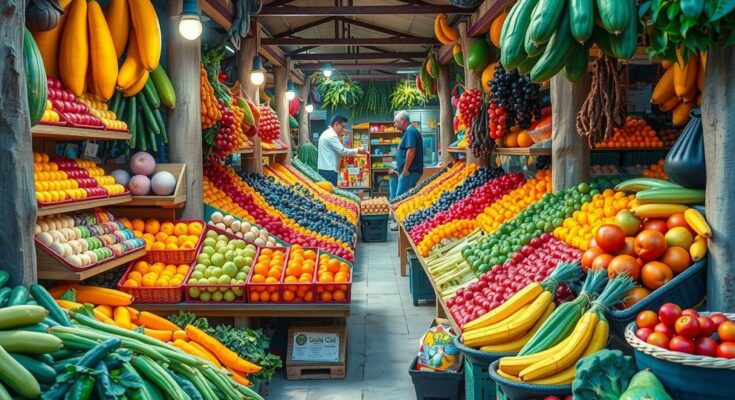Brazil’s consumer prices increased by 1.31% in February, marking the highest jump since 2022, causing concerns for President Lula. Annual inflation reached 5.06% with significant rises in housing and education costs. The Central Bank is expected to hike interest rates amidst public discontent.
Brazil has recently witnessed a significant surge in consumer prices, reflecting the most substantial increase in three years. The official data released indicates that prices rose by 1.31 percent in February, aligning with economists’ expectations. Consequently, annual inflation has surged to 5.06 percent, intensifying pressures on President Luiz Inácio Lula da Silva to address the adverse impact on consumers’ purchasing power.
Food cost inflation, in particular, has aggravated public discontent, prompting the government to seek solutions. The Central Bank is anticipated to implement its third consecutive interest rate hike of one percentage point, which may dampen economic growth amidst rising consumer apprehensions. According to Bloomberg’s economist, Adriana Dupita, inflation is forecasted to remain above the target, keeping policymakers engaged in adjustments.
Notably, housing expenses soared by 4.44 percent due to increased utility bills following the expiration of energy credits, marking the predominant inflationary influence in February. Additionally, educational costs rose by 4.7 percent, while food and beverage prices gained 0.7 percent, as reported by the statistics agency.
Consumers are expressing their frustrations toward President Lula amid escalating inflation and climbing interest rates, with recent opinion polls reflecting a notable decline in his approval ratings. To combat the issue, the government has initiated measures such as reducing import duties on food; however, economists suggest that the effect of these measures may be minimal, with annual inflation expected to exceed the three percent target for the foreseeable future.
In summary, Brazil’s consumer prices have risen sharply, prompting concerns over inflation strategies under President Lula. A continued rise in housing and education costs has exacerbated the situation, while discontent among consumers is mirrored in declining approval ratings. Although the government has implemented measures to curb inflation, their effectiveness remains questionable amidst rising economic pressures.
Original Source: www.batimes.com.ar




